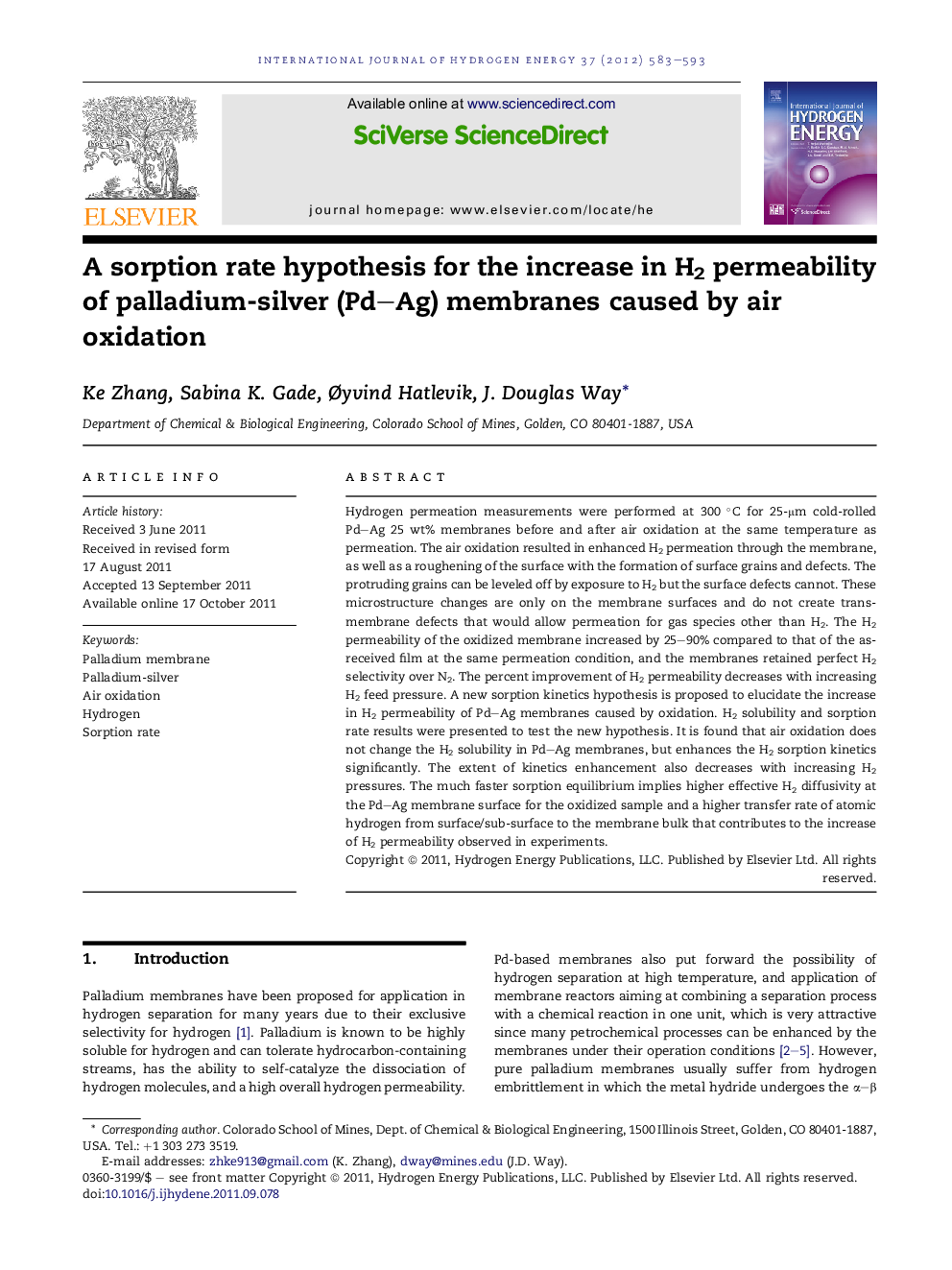| Article ID | Journal | Published Year | Pages | File Type |
|---|---|---|---|---|
| 1277172 | International Journal of Hydrogen Energy | 2012 | 11 Pages |
Hydrogen permeation measurements were performed at 300 °C for 25-μm cold-rolled Pd–Ag 25 wt% membranes before and after air oxidation at the same temperature as permeation. The air oxidation resulted in enhanced H2 permeation through the membrane, as well as a roughening of the surface with the formation of surface grains and defects. The protruding grains can be leveled off by exposure to H2 but the surface defects cannot. These microstructure changes are only on the membrane surfaces and do not create transmembrane defects that would allow permeation for gas species other than H2. The H2 permeability of the oxidized membrane increased by 25–90% compared to that of the as-received film at the same permeation condition, and the membranes retained perfect H2 selectivity over N2. The percent improvement of H2 permeability decreases with increasing H2 feed pressure. A new sorption kinetics hypothesis is proposed to elucidate the increase in H2 permeability of Pd–Ag membranes caused by oxidation. H2 solubility and sorption rate results were presented to test the new hypothesis. It is found that air oxidation does not change the H2 solubility in Pd–Ag membranes, but enhances the H2 sorption kinetics significantly. The extent of kinetics enhancement also decreases with increasing H2 pressures. The much faster sorption equilibrium implies higher effective H2 diffusivity at the Pd–Ag membrane surface for the oxidized sample and a higher transfer rate of atomic hydrogen from surface/sub-surface to the membrane bulk that contributes to the increase of H2 permeability observed in experiments.
► A new sorption rate hypothesis for the air oxidation effect on Pd-Ag membranes. ► The correlation of H2 sorption rate to H2 permeability caused by air oxidation. ► H2 solubility and H2 sorption rate data in support of this new hypothesis. ► Surface morphology and H2 permeation for the comprehensive understanding.
